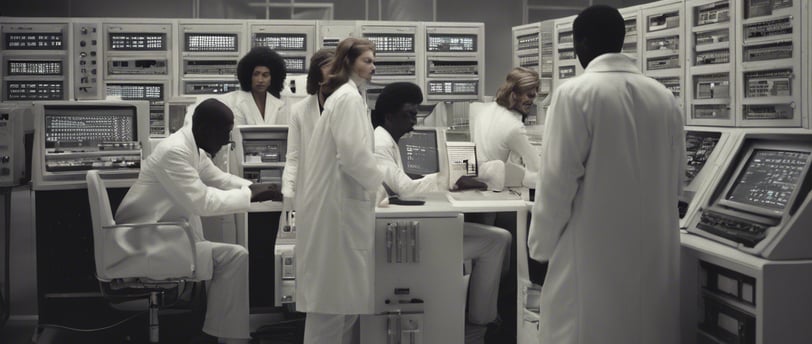Breaking Free: Why Kenyan Industries Can't Afford to Stick with Legacy Software
11/14/20243 min read


Would You Spend Ksh 28.4 Million to Maintain Your Mobile Phone?
Of course you wouldn't. Yet that's exactly what a 1970s mainframe computer cost to maintain annually in today's money - for a machine with less computing power than the smartphone in your pocket. Shockingly, many Kenyan industries are making this same expensive mistake right now - not with hardware, but with outdated software systems they can't seem to let go of. Why? Because they spent "an arm and a leg" on it years ago.
While no modern business would maintain a 1970s computer, we're seeing Kenyan manufacturers, distributors, and processors clutching onto legacy software systems that cost millions in maintenance fees yearly. The irony? Just like that old mainframe, these systems have less capability than modern solutions that cost a fraction to maintain. One Nairobi-based distributor was spending Ksh 15 million yearly maintaining their legacy inventory system - more than 80 times what a modern cloud-based solution would cost.
Imagine redirecting those maintenance millions into innovation. Progressive Kenyan companies that have broken free from legacy software are seeing their IT costs plummet by 60% while their capabilities soar. Picture real-time production monitoring from your phone, AI-powered quality control, and seamless integration with suppliers - all while spending less than you do today on maintaining outdated systems. A Mombasa-based manufacturer who made the switch is saving Ksh 8 million annually - money they're now investing in expansion.
The math is simple: if you wouldn't spend Ksh 28.4 million maintaining a mobile phone, why spend similar amounts maintaining obsolete software?
Here's the weird thing - this problem is actually worse in bigger companies. You'd think larger organizations would be smarter about this, right? Wrong. It's like watching someone refuse to give up their Nokia 3310 because they spent Ksh 20,000 on it back in the day. Except we're not talking about 20K - we're talking about hundreds of millions sunk into systems that belong in a tech museum.
Let's talk about why smart people make these seemingly dumb decisions. Picture this: You've just dropped Ksh 100 million on an ERP system. Five years later, it's giving you daily headaches, eating money like a hungry hippo, and refuses to play nice with any modern tools. But you can't let go. Why? It's the same reason people stay in bad relationships - "But I've invested so much already!"
This isn't just about money though. Big companies have this thing called "status quo bias" - fancy words for "if it's not broken, don't fix it." But here's the truth - it IS broken. They're just so used to the daily workarounds that they think it's normal. It's like that door in your house that everyone knows you have to lift slightly to close properly. It's not normal - it's broken!
And let's be honest about the hidden costs. While you're busy maintaining your dinosaur system, your competitors are running circles around you with modern solutions. Young, talented professionals take one look at your outdated tech and run for the hills. And don't even get me started on security risks - those old systems are about as secure as a wooden lock in a glass house.
But here's the good news - there's a whole new world of solutions out there. Remember how mobile phones changed everything? That's what's happening in enterprise software right now. Small, agile tech companies (yes, including local Kenyan ones) are building solutions that are faster, cheaper, and just plain better than those expensive legacy systems.
Think about it - these local tech companies understand our unique challenges. They know what it's like when the internet decides to take a coffee break. They're building solutions that work for African businesses, not solutions designed for Silicon Valley and forced to fit here.
Need proof? A manufacturer in Nairobi recently replaced their Ksh 20M legacy system with a Ksh 200,000 per month cloud solution. They're not just saving money - they're doing things they couldn't even dream of before. A distributor increased their efficiency by 40% just by switching to a mobile-first platform built by a local vendor.
So how do you break free? Start small. You don't have to rip out everything overnight. Pick one department, one process. Prove it works. Build confidence. Then scale up. And here's a radical idea - consider working with smaller, local tech companies. They're hungrier, more innovative, and actually pick up the phone when you call.
The bottom line? The world has moved on from mainframe computers because something better came along. It's time for Kenyan industries to do the same with their software. Because if you wouldn't spend Ksh 28.4 million to maintain a mobile phone, you shouldn't spend it maintaining outdated software either.
Your move, Kenya.
